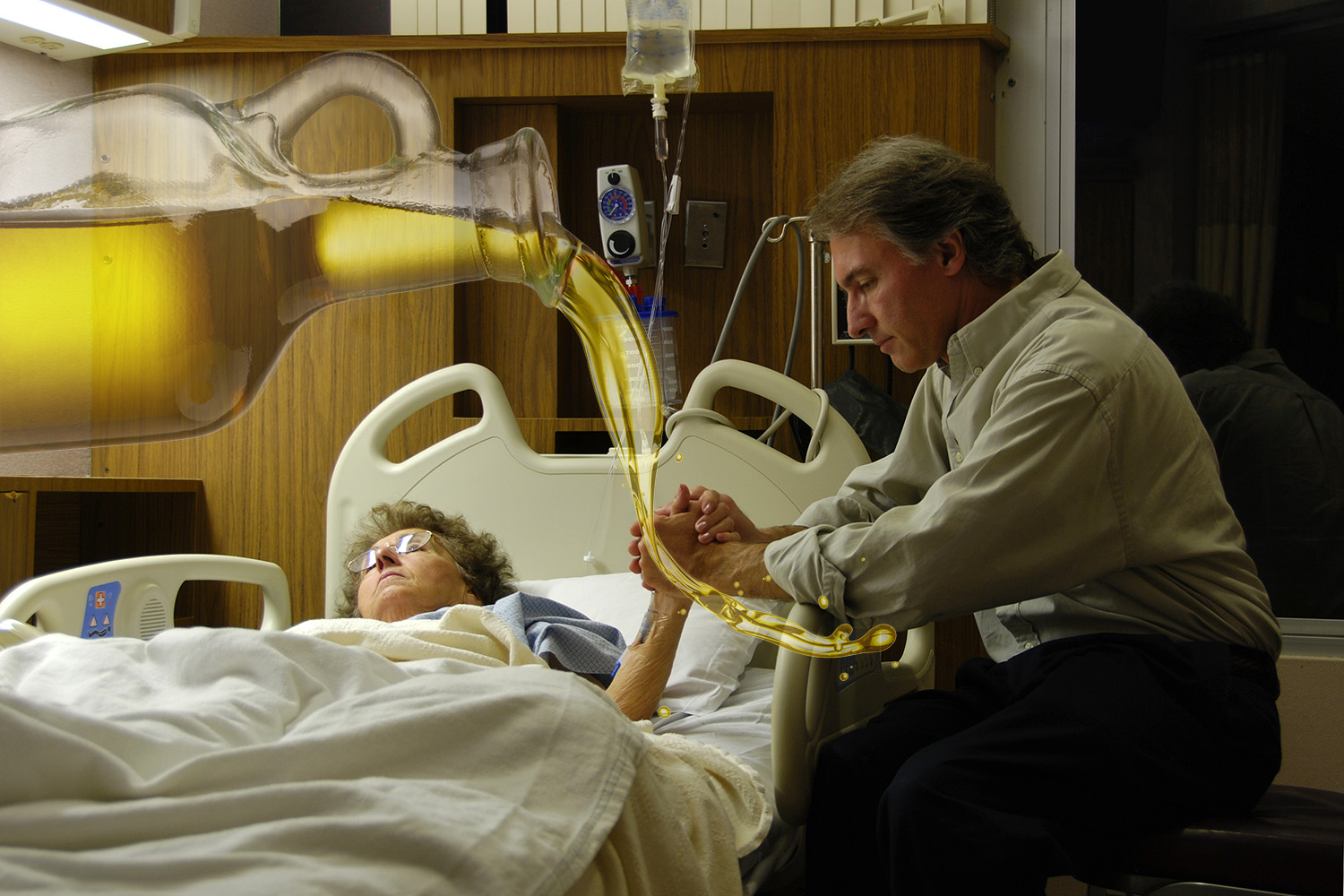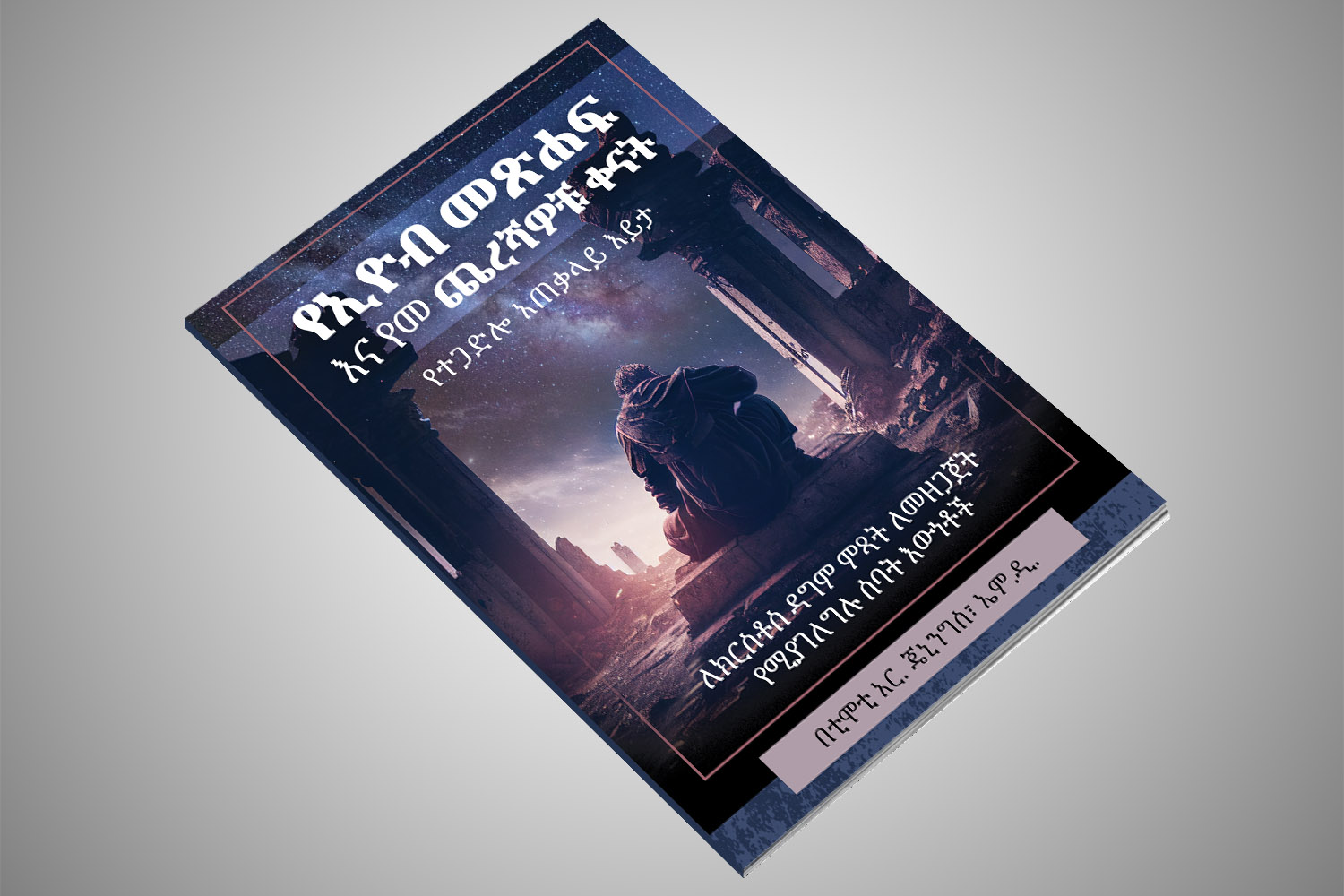I received this question from an online listener:
James 5:14,15 reads:
Is any one of you sick? He should call the elders of the church to pray over him and anoint him with oil in the name of the Lord. And the prayer offered in faith will make the sick person well; the Lord will raise him up (NIV1984).
The instructions above have the best of all worlds:
- Prayer
- Invites God’s personal presence, healing power, and divine will into the person’s life and situation to oversee and intervene as His will knows is best
- But prayer does more. We are living beings created by God with physical abilities. We can physically touch another person, set a bone, apply pressure to a wound, etc., and such actions can be beneficial to the sick even if the one intervening does not believe in God or ask for God’s help. Such benefits are carried out through God’s laws—the laws of physics and the laws of health. The specific laws involved in applying pressure to stop bleeding or setting a bone would be considered Newtonian physics—the physics of big things, the laws of motion, friction etc.
- However, God not only created the big things we can easily see and touch, but He also created the infinitely small things that we cannot, with our physical senses, see and touch. We cannot see and touch the atoms, electrons, subatomic particles, and as we get progressively smaller, we enter into the world of quantum physics. We, as intelligent beings, can use or own abilities, without believing in God, to set a bone or staunch bleeding and because of God’s sustaining of His physical laws, that action brings healing. So too, we can use our abilities via God’s quantum laws to impact and bring benefit to others. Research has demonstrated that when we pray with love and focused intention, our choice to focus our energy toward the goal of healing another has, on a quantum level, an actual physiological healing effect upon the one prayed for. [1] [2]
- Additionally, when we pray for another while being in the room with the one being prayed for, this is a relational experience, which allows the sick one to experience the comfort, love, affection, and concern of those praying. Such human connection calms stress circuitry, alters gene expression to improve immune function, and turns on cancer-fighting genes.[3]
- Thus, prayer has multiple benefits:
- Inviting God’s divine presence into the healing process
- Acting as intelligent agents of love via God’s quantum designs to use our individual energies to heal and restore
- Connecting people in relationship, which improves the sick one’s frame of mind and promotes wellness
- Invites God’s personal presence, healing power, and divine will into the person’s life and situation to oversee and intervene as His will knows is best
- Anointing with oil
- Oil in Scripture has symbolic and literal physical uses and applications. Both are useful in this setting. We see the symbolic in the anointing of priests or kings (Exodus 29:7) or Psalm 23:5, where David prays, “You anoint my head with oil,” referring to the cleansing of his mind and heart via the Holy Spirit. We see the literal in the story of the Good Samaritan, who poured oil on the injured man’s wounds (Luke 10:34).
- In the passage in James, he is referring to both. The oil represents known medicinals. The Bible is essentially saying, “If someone is sick, clean the wounds and apply remedies known to work.”
- But also anoint with symbolic oil, because this can have healing benefit for those who believe. Anointing with symbolic “holy” oil does not create a magical event, but it enhances the power of the mind—what some call the “placebo effect.” The placebo effect is not fake; it is the healing impact that the mind exerts upon the body when one believes the intervention will work. This healing impact is real and measurable. The brains of people who receive sugar pills but believe they are pain pills will release brain-produced endorphins and enkephalins, which are brain-produced opiates that cause real physical pain relief. But if the person knows it is a sugar pill, the brain will not release the endorphins or enkephalins.
- Oil in Scripture has symbolic and literal physical uses and applications. Both are useful in this setting. We see the symbolic in the anointing of priests or kings (Exodus 29:7) or Psalm 23:5, where David prays, “You anoint my head with oil,” referring to the cleansing of his mind and heart via the Holy Spirit. We see the literal in the story of the Good Samaritan, who poured oil on the injured man’s wounds (Luke 10:34).
Putting all of this together, I believe that James is saying that we should bring every intervention that has positive healing impact to bear to help the sick one:
- Apply known healing remedies, but also, if the patient is a believer, anoint with holy oil to bring their mind and their own personal trust in God to bear.
- But don’t stop with that—pray! Invite God’s personal healing presence and supreme will to be involved, while you simultaneously exert your power of love and good will via God’s quantum design, focusing your efforts on the sick one’s health and wellness.
Our God is the God of creation, and everything He asks us to do always has a rational, logical, reasonable basis—even if we don’t always understand it. Superstitions do not come from God; they come from misunderstanding and magical thinking. What James is instructing here is no magical or superstitious belief, but good, sound compassionate healing principles, solidly grounded in God’s design for life!
[1] Journal of Scientific Exploration, Vol. 14, No. 3, pp. 353–364, 2000
[2] Western Journal of Medicine 1998, 169(6), 356
[3] PNAS vol. 108 no. 7; Cole, 3080–3085, doi: 10.1073/pnas.1014218108











 using your credit or debit card (no PayPal account needed, unless you want to set up a monthly, recurring payment).
using your credit or debit card (no PayPal account needed, unless you want to set up a monthly, recurring payment). instead?
instead?